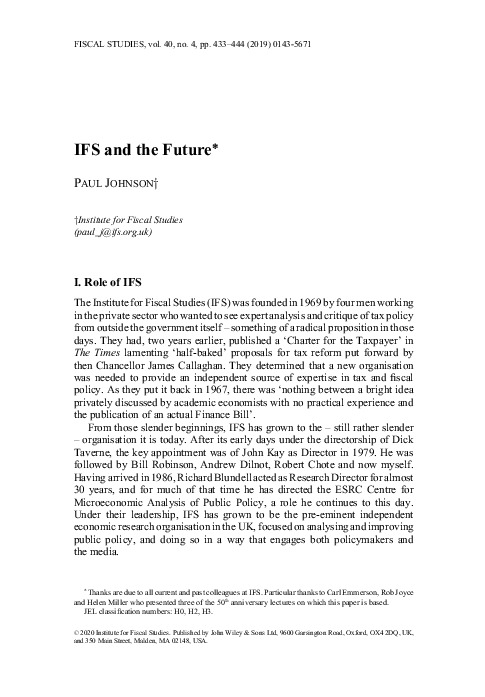This paper looks at the history of IFS and is written by our current director, Paul Johnson. It was first published in the 50th anniversary special issue of Fiscal Studies.
Excerpt:
The Institute for Fiscal Studies (IFS) was founded in 1969 by four men working in the private sector who wanted to see expert analysis and critique of tax policy from outside the government itself – something of a radical proposition in those days. They had, two years earlier, published a ‘Charter for the Taxpayer’ in The Times lamenting ‘half-baked’ proposals for tax reform put forward by then Chancellor James Callaghan. They determined that a new organisation was needed to provide an independent source of expertise in tax and fiscal policy. As they put it back in 1967, there was ‘nothing between a bright idea privately discussed by academic economists with no practical experience and the publication of an actual Finance Bill’.
From those slender beginnings, IFS has grown to the – still rather slender – organisation it is today. After its early days under the directorship of Dick Taverne, the key appointment was of John Kay as Director in 1979. He was followed by Bill Robinson, Andrew Dilnot, Robert Chote and now myself. Having arrived in 1986, Richard Blundell acted as Research Director for almost 30 years, and for much of that time he has directed the ESRC Centre for Microeconomic Analysis of Public Policy, a role he continues to this day. Under their leadership, IFS has grown to be the pre-eminent independent economic research organisation in the UK, focused on analysing and improving public policy, and doing so in a way that engages both policymakers and the media.









